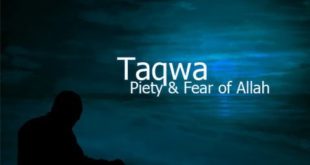Cii Radio | 19 Shawaal 1436/05 August 2015
The prospect of water shedding in South Africa is serious and looms on the horizon. It could be implemented in a few months for the rest of South Africa while shedding has already started in the Northern parts of Kwa Zulu Natal.
The World Wide Fund for nature’s (WWF) Dean Muruden who manages one of the first water programmes, called the Water Source Areas program, spoke to Cii Radio about the looming cut backs.
“The first thing which is really important for all South Africans to understand is that we are a water scarce country. We get around half the world’s average rainfall. Only 8% of our land area brings all of that water into rivers. Just to draw a parallel to the electricity situation. When there’s no light we can light a candle or have a braai. There’s something that you can do. But when there’s no water there’s nothing you can do. So water is renewable but not replaceable.”
South Africans need to start thinking and planning as if water matters. Something as simple as a leaking tap needs to be fixed as soon as possible, he explained.
As a result of levels in dams being so low the water authorities cannot get enough water to homes. If you’re a business owner involved in agriculture this will have a huge impact on your business. The approximation being relayed is that the current drought and shedding situation in Kwa Zulu Natal will cost the agricultural sector around R10 billion a year.
As a home user it means being allocated a specific volume of water to use per day. Once you have exceeded that volume your taps effectively shut off. Thereafter you will only be supplied with drinking water through water tankers. “It means that in a situation like that you will very quickly appreciate and understand the true value of water.”
“The last estimate is that municipality is losing around 38% of water, good quality clean treated water, to leaks in the system and that equates to around R7billion just lost. We need to start using what we have more efficiently. We need to remember just over 90% of our water is actually already allocated. We supply water to our neighbours, Swaziland and Mozambique as well. And we rely on Lesotho to deliver our water.”
International treaties that were signed compel us to continue supplying to our neighbours even though water is scarce. Muruden says if South Africans were honest with themselves supplying to our neighbours doesn’t change the fact that that we are not using water efficiently.
The WWF forges strong relationships with government and corporates in order to drive change. One of their projects is The Journey to Water campaign, launched by the deputy minister of water and sanitation, initiated to reconnect people with their true source of water. “Often we get stuck in a system that water comes from a tap or a dam but it’s actually the river in the mountain that delivers our water to these dams.”
If ten thousand people saved a litre a day it would make a difference he says. For more information on practical ways to save water, visit www. journeyofwater.co.za.
 Jamiatul Ulama KZN Council of Muslim Theologians
Jamiatul Ulama KZN Council of Muslim Theologians




